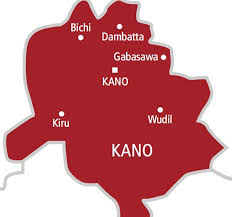
BOKO HARAM: INSURGENCY TO BRISK BUSINESS
The insurgency in the North-Eastern part of Nigeria has prevailed now for well over a decade. Besides the hundreds of thousands of human lives so far wasted and the millions of persons displaced, it has completely brought about the means of livelihood for the Civil populace.
While a good number of citizens within the general area have relocated due to security reasons, others have become combatants on either side of the divide.
The unduly prolonged war has brought widespread frustration on the locals who can't wait any further to have back their lives.
What could be responsible for the tortuous nature the execution of the war has assumed? Are own troops battle fatigued? Are there major deficits emanating from manpower, funding, logistics, equipment and welfare? Could these major deficits be the impediments?
How much of operational synergy exist between the Land and Air component force, who actually make up the fighting force? Could the reluctance to effect a change at the top hierarchy of the military be responsible?
The questions could keep pouring in as we search for an end to the Boko Haram insurgency.
Though all shortcomings mentioned above can be said to be partly responsible in one way or the other, unfolding developments related to the execution of the operation in the NE has proven that there are more cogent reasons for the prolongation of the war than meets the eye.
Trust deficits between the Military and local Civil populace, sabotage, betrayal, corruption and distractions have taken the lead position as factors prolonging the war.
Stakeholders seem to have suddenly come to the realization that if the war can not be ended, then let's look inwards and make the best out of the situation.
The best here being the culinary gains and fallouts, while stakeholders include Federal officials, State officials, The military, The Humanitarian community, NGOs, CSO, Local populace, Property agents, Contractors & Vendors.
In each of these categorizations are individuals who are monthly lining their pockets from the resultant consequences of corruption emanating from Sabotage activities, Lack of trust, Betrayal, Sale of classified information, Sale of small arms & light weapons (SALW), Sale of ammunition, Sale of spares, Sale of petroleum, oil & lubricants (POL). Etc.
When an operation gets this prolonged, frustration sets in with a high dose of battle fatigue. Troops gradually become distracted and lose focus. All sorts of unprofessional character traits get exhibited, giving room for a smart enemy force to exploit to its advantage.
When these tendencies are observed in a fighting body of men, the easiest way out is to recommend their rotation, paving the way for fresh boots on the ground.
Does the NA have the requisite numerical strength to effect a wholesome rotation of its troops at this crucial moment?
The consequence and unpredictability of a loss of institutional memory may not support the idea of a wholesome rotation of men.
However, since 60% of the Land component may have spent between 2-3yrs (+) in the theatre, priority could be given to such category for a pullout.
In addressing the Manpower deficits, it is advised that The NA considers the possibility of establishing additional Three more Training depots (institutions) in the West, East and North-East zones to complement the only one in Zaria.
These four Depots could be expanded to accommodate and train no less than 5000 recruits each annually. The dearth of instructors could be addressed by sourcing from the body of retirees where we have an alarming number of sound able-bodied former instructors wasting away. They could be brought in on negotiated contract terms as is the practice with most advanced armies globally.
Yet on retirees, there is a large holding of them that could beef up the fighting troops. At worst, they could be deployed or employed in Rear Area Protection roles, while the regular force takes on further tasks.
The seeming inability of our military to bring this war to an end is becoming a course for concern with severe backlash on the reputation of the Nigerian military.
About the Author
Col Hassan Stan-Labo is a veteran, Security Consultant, in-house analyst and research fellow to International Defense organizations and media houses.














Comments